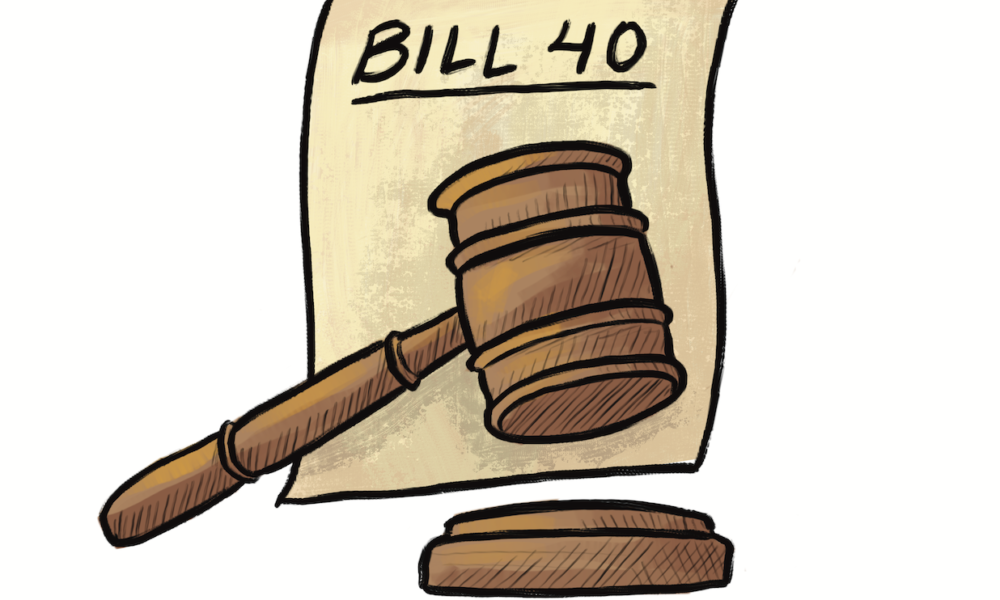Following the Quebec Superior Court’s ruling that portions of Bill 40—an education reform meant to transform the governance of English school boards—were unconstitutional, Premier François Legault publicly announced on Sept. 8 that his administration intended to send the case back to court. As of Sept. 15, their request for appeal has officially been filed.
What is Bill 40?
Bill 40 is one piece of the mounting legislation and public debate regarding what place English will continue to have in Quebec. The province adopted Bill 96, which built upon Quebec’s previous language legislation established in Bill 101, in May of last year. Portions of the bill came into effect this summer, notably, education reforms that cap the number of students permitted to enroll in English-language CEGEPs and set requirements for the number of courses instructed in French that students are required to take in order to graduate.
Bill 40, adopted in February 2020, planned to convert English-language school boards into “service centres.” The Ministry of Education described this reform as a way to provide Quebec schools with “a modern, efficient governance, closer to the needs of students.” The Quebec English School Board Association (QESBA) disagreed and brought it to court on behalf of nine of Quebec’s anglophone school boards, claiming that it is unconstitutional.
Why is QESBA opposed to Bill 40?
In an interview with The Tribune, QESBA Executive Director Russell Copeman explained the organization’s rationale for challenging the bill and why he considers the case paramount for English-language education rights in Quebec.
“We are convinced [the bill] is a significant shift, that it dilutes the responsibilities of the school service center governance model and transfers that responsibility to the government of Quebec,” Copeman said. “It would be […] practically an elimination of the autonomy or independence of democratically-elected school boards.”
According to QESBA, this transfer of control violates Article 23 of the Canadian Charter of Rights and Freedoms, which guarantees provincial minority language groups the right to education in their language.
Copeman also appealed to the francophone minority experience in the rest of Canada, highlighting what he sees as the comparable position of Quebec’s anglophone population as protected under Article 23. According to the Canadian government, over 160,000 francophones study at community-run French-language primary and secondary institutions outside of Quebec. As of 2016, New Brunswick was 31.8 per cent francophone, the Yukon was 4.6 per cent francophone, and Prince Edward Island was 3.3 per cent francophone.
“Francophones outside of Quebec […] have been fighting for decades to establish French language schools, to establish a governance structure that they are in control of,” Copeman said. “The link between education and the vitality of a minority community is very, very clear—and that’s why it’s so important in our view to maintain school boards under the control and management of the community.”
What is the current status of Bill 40?
The Quebec Superior Court ruled in favour of QESBA on Aug. 2, affirming that portions of Bill 40 indeed violated the rights of Quebec’s anglophone minority. Just over a month later, the governing party Coalition Avenir Quebec (CAQ) filed an appeal of that ruling.
QESBA has publicly criticized the CAQ’s decision in their most recent press release, expressing their disappointment on behalf of the province’s English-speaking population—particularly the 100,000 anglophone students their organization represents. Quebec’s liberal and conservative opposition parties echoed the sentiment, calling for the CAQ to drop their plans to appeal and encouraging unity in the face of pressing educational concerns plaguing Quebec—most notably, staff shortages that have left thousands of vacant teaching positions across the province.
The Quebec Ministry of Education did not respond to The Tribune’s request for a comment.








